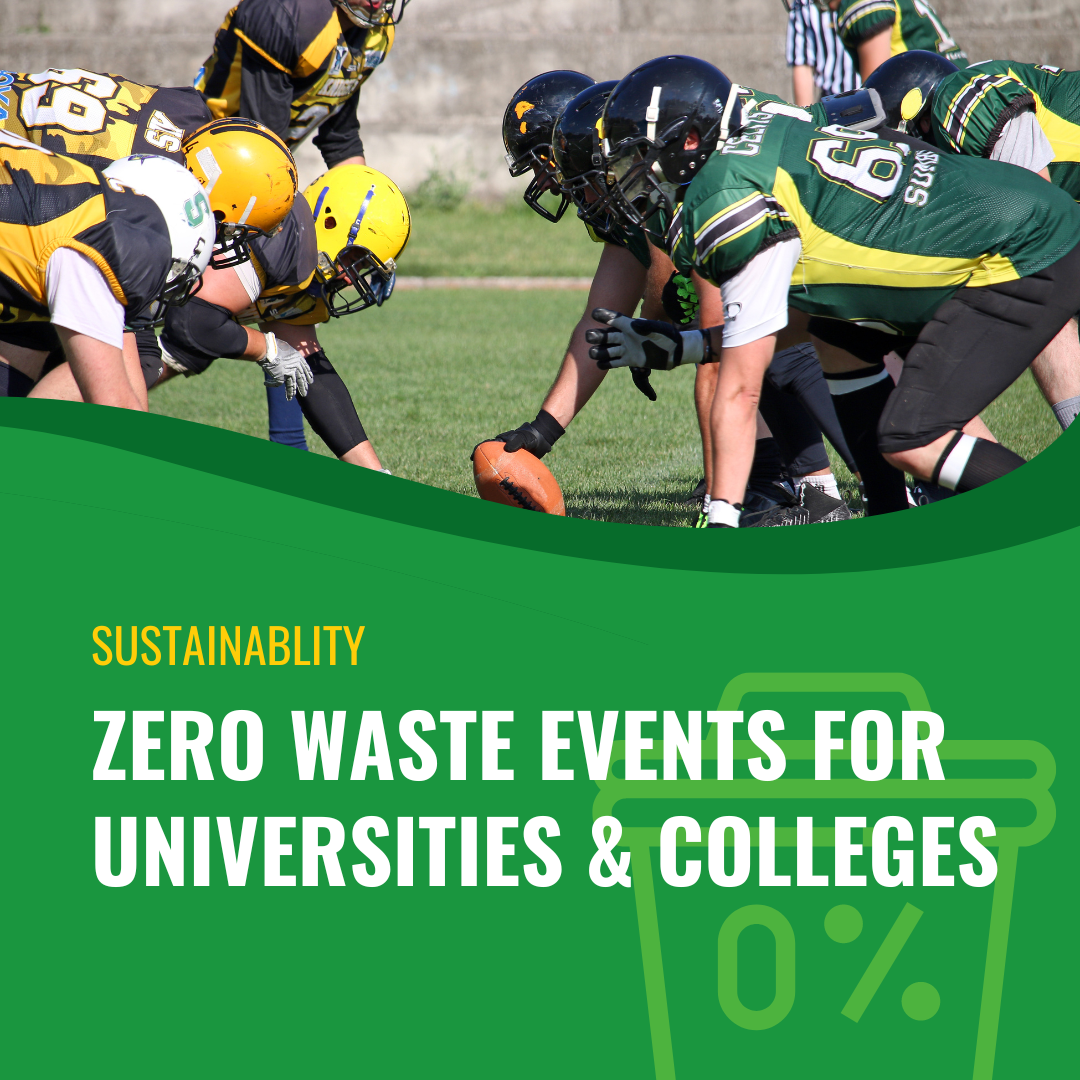We use cookies to make your experience better. To comply with the new e-Privacy directive, we need to ask for your consent to set the cookies. Learn more.
Zero Waste Events for Universities and Colleges
Increasingly, university students and sustainability offices are pressuring their institutions to make the switch to zero-waste events. Even when events fall short of this goal — usually defined as 90-percent diversion from landfills — organizers who plan for zero waste drastically reduce the occasion's carbon footprint.

Universities are leading the drive toward zero waste event planning, perhaps because they are such hotbeds of events in the first place. From college sports to student celebrations to graduations, places of higher education are high-activity areas. That makes them instructive to anyone interested in planning a zero-waste event.
Here's what we've learned by browsing the zero-waste event guides from leading institutions of higher learning, including Harvard, the University of Colorado at Boulder, and the University of Illinois at Chicago:
1. The zero-waste event starts at the planning stage.
Well before the event takes place, organizers must work with caterers to provide compostable dining ware. If possible, all cups, plates, and cutlery should be made from BPI-certified compostable material. The institution's office of sustainability may be able to help students source compostable items.
2. Organizers will need a lot of signs.
Sometimes, venues will already have plenty of compost and recycling bins. Other times, organizers need to borrow them from sustainability offices or retrofit existing bags with clear signage to avoid contamination. Some universities offer downloadable signs to label composting and recycling bins, but you can always make your own. When in doubt, tape actual compostable items to compost bins and recyclables to the recycling carts.
3. During the event, place volunteers at disposal stations.
Contaminated organics cannot be composted. Contaminated recyclables won't make it through the recovery facility. The best way to keep these material streams clean is to have volunteers standing at each disposal station, educating visitors on proper disposal.
4. When the event is complete, track your waste.
Weigh each bag of compost, recycling, and landfill trash. Document your success. Tracking weights is the best way to determine whether you met your 90-percent diversion goal.
5. Safely transport bins and/or bags to bulk containers for pickup.
Students should never lift and empty waste bins into dumpsters. Lifting and twisting can lead to musculoskeletal injuries. Instead, institutions should provide sustainability offices with Bin Dumpers for students to rent during zero-waste events.
Depending on the institution, there may be more resources available to ensure a successful zero-waste event. The University of Colorado at Boulder, for instance, offers professional and student-staffed services to divert waste from landfills.
There's no substitute for a student-led zero-waste event, though. Students who practice sustainable materials management become executives who do the same. Tomorrow's business leaders may prioritize zero-waste initiatives, with all the financial and environmental benefits associated with them.
References:
"Recycling at Your Event." Colorado. University of Colorado at Boulder, 2018. Web. 27 July 2018.
"Zero Waste Event Guide." Harvard. Harvard University, 2018. Web. 27 July 2018.
"Zero Waste Event Planning Guide." UIC. University of Illinois at Chicago, 2018. Web. 27 July 2018.
